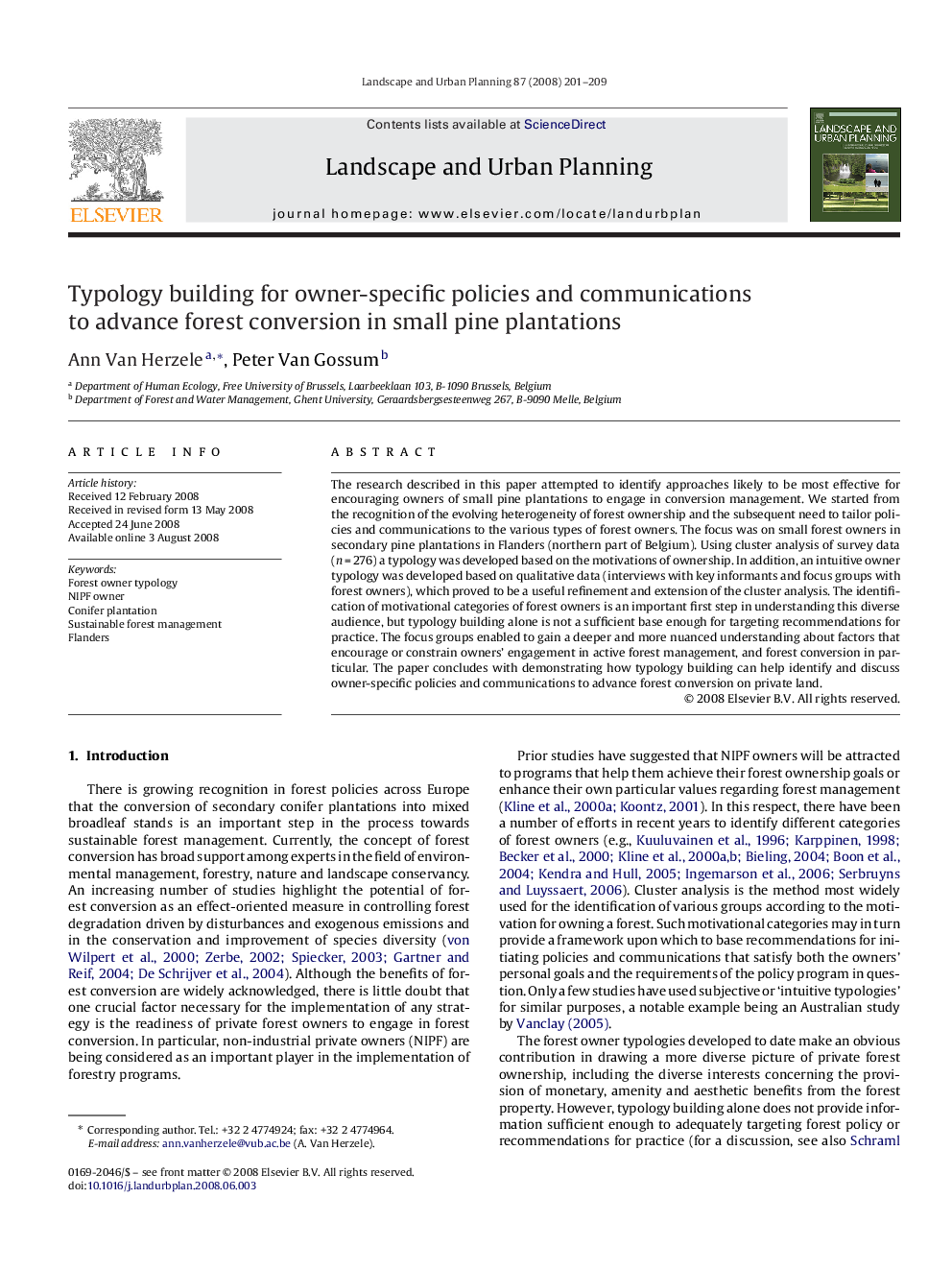| Article ID | Journal | Published Year | Pages | File Type |
|---|---|---|---|---|
| 1050382 | Landscape and Urban Planning | 2008 | 9 Pages |
The research described in this paper attempted to identify approaches likely to be most effective for encouraging owners of small pine plantations to engage in conversion management. We started from the recognition of the evolving heterogeneity of forest ownership and the subsequent need to tailor policies and communications to the various types of forest owners. The focus was on small forest owners in secondary pine plantations in Flanders (northern part of Belgium). Using cluster analysis of survey data (n = 276) a typology was developed based on the motivations of ownership. In addition, an intuitive owner typology was developed based on qualitative data (interviews with key informants and focus groups with forest owners), which proved to be a useful refinement and extension of the cluster analysis. The identification of motivational categories of forest owners is an important first step in understanding this diverse audience, but typology building alone is not a sufficient base enough for targeting recommendations for practice. The focus groups enabled to gain a deeper and more nuanced understanding about factors that encourage or constrain owners’ engagement in active forest management, and forest conversion in particular. The paper concludes with demonstrating how typology building can help identify and discuss owner-specific policies and communications to advance forest conversion on private land.
